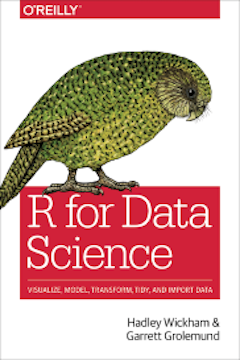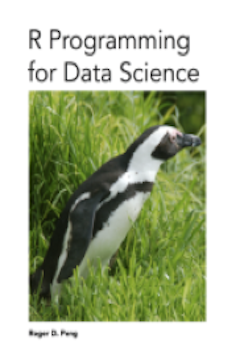BAN 300: Foundations of Data Management
2020-05-05
Introduction
Welcome to BAN 300: Foundations of Data Management. This course is largely about the janitorial work for business analytics. You won’t be able to impress your friends with what you learn but you will increase your own productivity immensely. You’ll also become proficient with the R language, which is fairly popular. I would consider R akin to Apple ecosystem and Python akin to Windows ecosystem. This class is the prerequisite for all other courses in the Business Analytics major at USM.
Pre-class checklist
By the first day of class, you are expected to:
- Review all the materials through unit 1 - getting started on this website.
- Watch the welcome video.
- Sign up for Piazza. Make sure your name accurately reflects what is in MaineStreet.
- Accept the invite to DataCamp you will receive in your maine.edu email account. DataCamp is free for the entire semester.
- Install R and RStudio on your computer (see Unit 1 for details)
- After you have completed all the items above, sign up for your free RPubs account.
Schedule
last updated: 2020-05-05
| Date | Unit | Topic | Items_due | Due |
|---|---|---|---|---|
| Tue Jan 21 | 1 | Getting started | DC 1-3 | Sat Feb 01 |
| Mon Feb 03 | 2 | Introduction to R | DC 4-6 | Sat Feb 08 |
| Mon Feb 10 | 3 | Exploring data - I | DC 7-8 | Sat Feb 15 |
| Mon Feb 17 | 4 | Exporing data - II | DC 9-10 | Sat Feb 22 |
| Mon Feb 24 | 5 | Communicating visually | DC 11-12 | Sat Feb 29 |
| Mon Mar 02 | 6 | Creating reports | DC 13-14 | Sat Mar 07 |
| Mon Mar 09 | 7 | Assignment: CredX | A01 | Sat Mar 14 |
| Mon Mar 23 | 8 | Importing data | DC 15-17 | Sat Mar 28 |
| Mon Mar 30 | 9 | Tidy data | DC 18-21 | Sat Apr 04 |
| Mon Apr 06 | 10 | Open data | Assignment 2 | Sat Apr 11 |
| Mon Apr 13 | 11 | Web data, Twitter | DC 22-23 | Sat Apr 18 |
| Mon Apr 20 | 12 | Web scraping | Assignment 3 | Sat Apr 25 |
| Mon Apr 27 | 13 | Project Work | NA | Sat May 02 |
| Mon May 04 | 14 | Project Work | Project | Sat May 09 |
Syllabus
Prerequisites
MAT 210 or other approved statistics course - see http://usm.maine.edu/sb/stats for approved courses (C- or higher grade).
Reference Texts
Suggested and Free
Most of the material will be on this site and in the DataCamp exercises. Here are some really good reference books available online for free:
- R for Data Science, Grolemund and Wickham
- R Programming for Data Science, Peng
- YaRrr! The Pirate’s Guide to R, Phillips
Course Tools
This class is supported by DataCamp, the most intuitive learning platform for data science. Learn R, Python and SQL the way you learn best through a combination of short expert videos and hands-on-the-keyboard exercises. Take over 100+ courses by expert instructors on topics such as importing data, data visualization or machine learning and learn faster through immediate and personalised feedback on every exercise. You will have access to the entire DataCamp course library for free for the duration of this course. I’ll make an announcement in Piazza detailing the effective dates.
Blackboard will only be used as a grade repository.
Piazza will be used for announcements, discussion, etc.
R is the analytics tool we will be using.
RStudio is the Integrated Development Environment (IDE) and the way you will be accessing R.
RPubs is where we will be publishing our assignments and project.
Grading
DataCamp Exercises: 60% (3 lowest grades dropped 23 - 3 = 20 @ 3% each)
Participation (in Piazza): 5%
Assignments: 15% (3 @ 5% each)
Final Project: 20%
Under no conditions will any items be accepted late in class
Class participation will be solely judged by your contributions in Piazza. To receive full credit, you must:
- Provide constructive comments on at least two assignments that are not your own.
- Ask or answer at least two questions in Piazza.
At the end of the semester, if you have questions about your participation grade please first view the grading rubric in the Blackboard gradebook by selecting your grade and then selecting “View Rubric”.
Learning Goals
Upon successful completion of this course, students will be able to:
- manipulate data from a variety of sources
- translate raw data into a format suitable for analysis
- analyze and visualize data
- integrate their analysis into beautiful reports
- gain proficiency with the R language
ADA
At any point in the semester, if you encounter difficulty with the course or feel you could be performing at a higher level, please consult with me. Students experience difficulty for a variety of reasons. Help is also available through the Counseling Center, 105 Payson Smith (780-4050), and the Office of Academic Support for Students with Disabilities, 237 Luther Bonney (780-4706; TTY 780-4395).
Adaptations: The Americans with Disabilities Act of 1992 mandates the elimination of discrimination against persons with disabilities. If you need course adaptations or accommodations because of disability please contact the Disability Services Center, 2nd floor, 237 Luther Bonney Hall (780-4706; TTY 780-4395).
Conduct and Academic Integrity
The USM Student Academic Integrity Policy will be vigorously enforced in this class. Common sense should be your guide for how to behave online. For those that need a refresher, here is a link to the USM Student Conduct Code. Because this is an online class, I’ll make a special mention of this. Do not flame people in the forums. Treat each other with civility and respect.
Repeating Courses
Any School of Business major or minor who has enrolled in an ABU, ACC, or BUS course more than twice must, before continuing in that course, complete and have approved by the Department Chair, a course condition form (available from the School of Business academic advisors). Failure to do so may result in course credit disqualification. Non-business students should consult specific policies that are applicable to their majors.
School Mission
We prepare and inspire current and future leaders, and stimulate economic growth by providing quality learning opportunities, valuable research and professional service, all in partnership with the business community.
Project
The project is designed to encourage you to learn on your own. You must choose and complete DataCamp option from the list below. In an RPubs report that you post to Piazza, write up a review of the option you took (i.e., what you liked and didn’t like about the courses) and attach the pdf certificates you were awarded. The following combinations are pre-approved. If there are other courses you would prefer to take from the DataCamp catalog you must email me a brief rationale and ask for approval before starting them. Please check the prerequisite expectations listed in the course before you consider it. Any courses that are under the “absolutely can’t use” list can’t be used because you will be doing them in other business analytics courses or they are too similar to those courses.
Pre-approved DataCamp combinations (not in any particular order):
- Introduction to Data + Exporatory Data Analysis
- Introduction to Data + Experimental Design in R
- Introduction to SQL for Data Science + Joining Data in PostgreSQL
- Correlation and Regression + Marketing Analytics in R: Statistical Modeling
- Correlation and Regression + Multiple and Logistic Regression
- Working with the RStudio IDE (Part I) + Working with the RStudio IDE (Part II)
- Intermediate R + Time Series with R
- Intermediate R + Statistical Modeling with R (Part 1)
- Intermediate R + Network Analysis in R
- Intermediate R + Forecasting Product Demand in R
- Grab bag option - choose two from: Business Process Analytics in R, Writing Functions in R, Correlation and Regression, Exploring Pitch Data with R, Importing & Cleaning Data in R: Case Studies, Intermediate R, Foundations of Probability in R, Fundamentals of Bayesian Data Analysis in R, A/B Testing in R
You absolutely can’t use these courses:
- Data Manipulation in R with dplyr
- Introduction to R
- Intermediate R - Practice
- Importing Data in R (Parts 1-2)
- Cleaning Data in R
- Introduction to the Tidyverse
- Reporting with R Markdown
- Joining Data with dplyr
- Data Visualizion with ggplot2 (I - II)
- Building Web Applications in R with Shiny
Bharat Bhushan Verma Instructor
I strongly urge you to post your academic queries on Piazza. If you are shy and do not want to reveal your identity while posting your queries, you can post them anonymously. Similarly, I strongly urge you to answer the questions posted by other students so that you can test your own understanding. While doing so you can earn the bonus 5% extra credits. It can make a difference to you getting your scholarship or not. Take full advantage of the Piazza platform to maximize your score.
I am restricting myself to answer posted queries for eight hours to give enough room for other students to reply to the query.
I won’t be answering any queries related to the course sent to my email. I will only respond to queries posted on Piazza only.
Contact
You can reach me for anything that is specific to you or only few of you
- in person at 516 Luther Bonney Hall with prior appointment.
- through email on bharat.verma@maine.edu
- virtually through a Zoom virtual conference/office link in a Piazza pinned post. Zoom is the University of Maine System’s web conferencing tool and we can do audio/video conferencing with screensharing and multiple participants.



